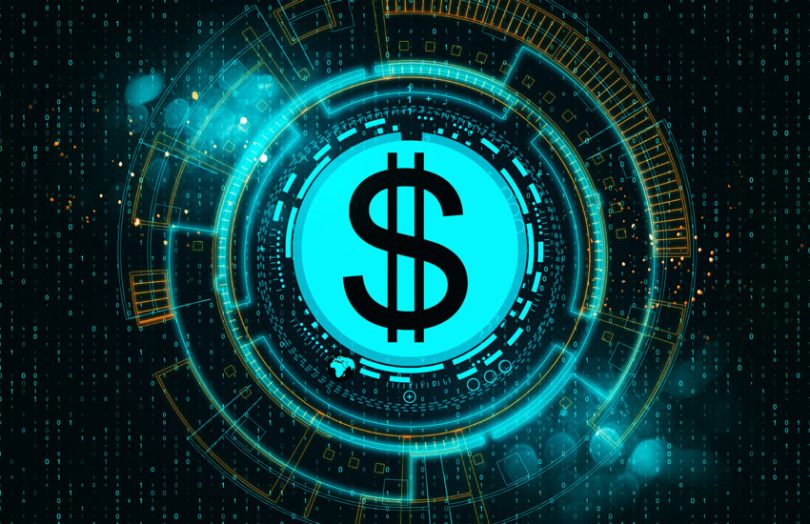by Joseph P. Farrell, Giza Death Star:

OK, so here’s my random thought of the day…
There’s a move afoot to prohibit a central bank digital dollar from ever being issued by the Fed – without “authorization” that is – according to this article shared by E.G.(with our thanks):
US lawmakers advance legislation blocking the digital dollar
When I read this article (the first time) I thought, “Well, that’s good, someone out there realizes what Catherine Fitts and many others including yours truly have been warning about: a central bank digital currency is too easy to couple to a social engineering system, and affords no privacy. It’s a sure, certain, and swift route to slavery and feudalism, and it’s nothing but a corporate coupon. It’s a method to prohibit wealth accumulation much less passing it along, because a wholly digital ‘currency’ could be made with an ‘expiration’ date. Use it or loose it.” And so on. Yet, reading it, I had to admit that something about the article gnawed away at me. Something was missing. So I re-read it…
TRUTH LIVES on at https://sgtreport.tv/
See if you can spot it, for here’s the article in full:
The United States House Financial Services Committee is moving forward with legislation aimed at preventing the issuance of a central bank digital currency.
According to an announcement from chairman Patrick McHenry, the committee will mark up two bills about a potential digital dollar on Sept. 20. Markups are sessions in which lawmakers discuss the details of a bill. It is a crucial step before legislation moves to the House floor.
One of the bills is the Digital Dollar Pilot Prevention Act, or H.R. 3712, which prohibits the Federal Reserve from initiating pilot programs to test CBDCs without approval from Congress. The legislation was introduced by Representative Alex Mooney in May.
The Fed recently denied any decision on whether to issue a CBDC, claiming it “would only proceed with the issuance of a CBDC with an authorizing law.” However, the Federal Reserve of San Francisco has sought to fill technical positions for a CBDC project over the past few months, indicating that the digital dollar remains on the table.
The second legislation is an amendment to the Federal Reserve Act prohibiting Fed banks from offering certain products or services directly to an individual, along with prohibiting the use of CBDCs for monetary policy and for other purposes.
“A Federal reserve bank shall not offer a central bank digital currency, or any digital asset that is substantially similar under any other name or label, indirectly to an individual through a financial institution or other intermediary,” reads the bill.
The prospect of a digital dollar has stirred controversy in the United States. Presidential candidates Robert F. Kennedy Jr. and Ron DeSantis have spoken out against the establishment of a CBDC in the country, citing financial privacy concerns. Supporters of CBDCs claim it would help the United States to keep the dollar’s global relevance, as well as boost cryptocurrency adoption. (Emphasis added)
I imagine that regular readers of this website can easily spot all the openings in the laws as summarized or quoted in the article: the language is so loose and leaves such big holes that they’re big enough to drive a panzerarmee through. Besides that, something tells me that those countries which still value real production from real factories, real mines, real wells, and real power plants are not going to be too swayed by keeping a dollar “relevant” by making it represent none of those things and backed by… well, by what, exactly? What does the USA make besides endless wars, lots of GMO “food-like products” (to cite the contemporary labeling conventions), and dubious financial “instruments”? With the BRICS nations continuing to talk about a gold-backed currency (even though not one of them is talking about that all-important issue of convertbility), something tells me they’re not going to be too impressed with a “relevant dollar” just because it’s digital, and subject to all the problems that corporate coupons have, including expiration dates. Lesson number one: corporate coupons always have expiration dates. Lesson number two: anything with an expiration date is not a currency, because currencies are supposed to be relatively stable stores of value (hence the whole idea of bullion as a backing for currencies, but I digress).
Certainly I find myself in strong agreement with Mr. Kennedy and Mr. DeSantis: digital currencies are a privacy nightmare, and in a country with an out of control, lawless, and completely insane goobernment like the USSA, even more so.
But my concern isn’t privacy, nor the inherent danger that a digital “currency” is a ticket to perpetual slavery and the impossibility of any wealth accumulation via a corporate coupon with an expiration “use by” date, my concern is something else entirely, something that no one seems to be addressing, and probably for very good reason: what is the constitutionality of a digital currency?
I rather suspect it’s next to nil, because how does one “make” and “coin” something digital? Granted, some digital “currencies” might have the world “coin” in their names, but the word “coin” in that instance would seem to invoke the same sort of word-twisting alchemy used by the supreme court in some landmark money cases. Consider, for example, the following “explanation” of some Supreme Court cases involving Article I, Section 8, Clause 5, concerning the coinage and currency power of the Congress:




